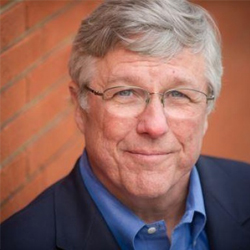GAP President John Dwyer commends President Joe Biden on his commitment to fight Alzheimer’s, as well as calls on Congress to pass ARPA-H.
Normally, presidential proclamations aren’t news. However, as the United States sinks deeper into a worsening Alzheimer’s public health crisis, President Joe Biden is making his priorities on the disease abundantly clear.
Prior to the commencement of National Alzheimer’s Disease Awareness Month 2021, Biden reaffirmed his commitment to fighting against the disease and made a long-overdue call for increased focus on ensuring that people who are disproportionately affected by Alzheimer’s are seen, heard and included in the quest to prevent and treat it.
We know firsthand what it takes to bridge racial gaps in Alzheimer’s research and care, from South Texas to Chicago. To achieve equity, we need extensive community-based partnerships combined with legislative and regulatory action in Washington.
The effects of Alzheimer’s on families across the United States are devastating: An estimated 6.2 million Americans ages 65 and older are living with the disease. And, barring the development of novel therapies and cures, an estimated 12.7 million Americans ages 65 and older will be living with Alzheimer’s by 2050.
Nationally, Black Americans are as much as three times more likely and Latino Americans are 1.5 times more likely to develop Alzheimer’s in their lifetimes than whites. By 2040, Black Americans and Latino Americans will account for over half the people living with Alzheimer’s in the United States.
One of the biggest challenges researchers have faced in the last two decades while searching for innovative therapies for Alzheimer’s is in clinical trial recruitment. In the Alzheimer’s field, upwards of 90 percent of research studies are delayed due to slow recruitment and 99 percent of potential volunteers are never referred to or never consider participating in a clinical trial.
This lack of information and opportunity is especially pronounced in Black and Latino communities across the United States: Nationally, Black and Latino Americans make up less than 5 percent of clinical trial participants. And these communities are often the hardest to reach.
We need collaboration between policymakers, regulators and private research institutions to address this problem. The president’s request for Congress to fund the recently proposed Advanced Research Projects Agency for Health (ARPA-H) is a great first step.
ARPA-H would accelerate the development of treatments and other innovations for conditions like Alzheimer’s and Parkinson’s and revolutionize the ways in which we diagnose, mitigate the effects of and prevent these diseases. Additionally, ARPA-H would ideally create systems for researchers who are trying to enroll underserved communities in their trials — while also bringing key infrastructure directly to those underserved populations. We are hopeful that members of the House and Senate will take this as an opportunity to bring quality research and care to communities in need, particularly in medically underserved areas.
Still, improving equity in Alzheimer’s care will require a huge effort on the part of the research community. Manufacturers will need to continue investing large portions of their revenue into research and development efforts and will need to take advantage of the resources that ARPA-H provides. And public interest groups will need to use our collective resources to help sponsor trials and establish community-based partnerships with traditionally underrepresented populations to communicate the importance of getting involved in clinical trials.
The good news? We have shown that the research community can do this.
In collaboration with Alzheimer’s clinical trial sites around the country, we are currently sponsoring the Bio-Hermes Study. Bio-Hermes is a first-of-its kind clinical trial which seeks to find cost-effective alternatives to the current inaccessible and expensive Alzheimer’s assessment tools.
Supported by a consortium of some of the largest biopharmaceutical industry partners and leading technology companies, Bio-Hermes has made the landmark commitment to ensure that the study is at least 20 percent composed of clinical trial participants who identify as Black and Latino (four times the national average). And we’ve been successful.
We’ve been successful because we are bringing trials directly to communities through local partnerships. We have worked together with local media (particularly Black-owned and Hispanic media) to deliver opportunities directly to those living with Alzheimer’s. And we have built partnerships with local influencers and community physicians to help us relay the message through education and trust building. We are even helping to increase the clinical trial infrastructure in Rio Grande City, Texas — a city and community that deserves much better access to cutting edge research.
To achieve Biden’s goals of equity in Alzheimer’s research and care, and the medical community more broadly, it will take both ARPA-H and a national effort by our field to reach underserved communities with clinical trials. It’s not an easy task, but it’s necessary and we’ve proven that we have the capacity to establish those partnerships needed to bring clinical trials to underserved people living with Alzheimer’s disease.
With ARPA-H and collaboration from the research community, we can change the way medical studies are conducted in this country and better ensure that we are developing treatments and cures that will be sensitive and specific to all communities — not just for the majority. Congress must vote yes on the recently proposed H.R. 5585 and establish the Advance Research Projects Agency for Health.
John R. Dwyer Jr. is the president of the Global Alzheimer’s Platform Foundation and co-founded Us Against Alzheimer’s, a patient advocacy group focused on changing the way the country addresses the threat posed by Alzheimer’s; he also co-founded the first political action committee focused on a specific disease, the Alzheimer’s Action PAC.
Originally posted on the Morning Consult on November 12, 2021.
